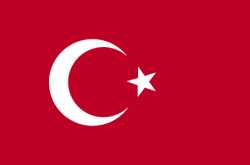New wave of arrests in Turkey of alleged coup plotters
 Ankara - At least 14 people were taken into custody Monday in the latest wave of arrests connected to a shadowy nationalist gang that prosecutors claim was conspiring to overthrow Turkey's moderate Islamic government, Turkish media reported. Monday's arrests focused on academics and members of private foundations who prosecutors suspect are connected to the so-called Ergenekon gang which allegedly had links to various murders in the past.
Ankara - At least 14 people were taken into custody Monday in the latest wave of arrests connected to a shadowy nationalist gang that prosecutors claim was conspiring to overthrow Turkey's moderate Islamic government, Turkish media reported. Monday's arrests focused on academics and members of private foundations who prosecutors suspect are connected to the so-called Ergenekon gang which allegedly had links to various murders in the past.
The group also allegedly had plans to carry out assassinations of political and social leaders, including Prime Minister Recep Tayyip Erdogan, former Chief of General Staff Yasar Buyukanit and Nobel Prize-winning author Orhan Pamuk.
It was through these assassinations and other types of destabilizing attacks that the group hoped to create the chaos necessary to allow the military to launch a coup in 2009 on the basis that it was bringing order back to society, authorities allege.
Ergenekon is the name that prosecutors allege the group called themselves and refers to a mythical Turkic homeland in central Asia.
In addition to raiding dozens of private homes and the offices of a foundation that supports education and the arts, police on Monday morning searched the rector's building of Baskent University and the Ankara headquarters of Kanal B television station.
The head of Baskent University, Mehmet Haberal, was detained and his house in Ankara searched.
In all, raids were carried out in 18 provinces across the country.
Others caught up in the raids included the head of the staunchly- secular Kemalist Thought Association, Mustafa Yurtkuran, and a number of former university rectors.
NTV reported that a police arrest list named more than 40 others.
Monday's arrests bring to around 150 people who have been taken into custody in connection to the Ergenekon case.
Those taken into custody earlier are currently on trial in Istanbul for their alleged involvement in the coup plot. Prosecutors at the trial have said that the staunchly secularist and nationalist group was angry at what they believe is the government's watering down of secular laws and its giving up national sovereignty in Turkey's bid to join the European Union.
Opposition figures have described the trial as a witch hunt carried out by the government as revenge for a failed attempt to have the ruling Justice and Development Party (AKP) closed down or as a way to take attention away from its alleged attempts to undermine the secular state and implement Sharia (Islamic) law.(dpa)